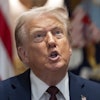GENEVA (AP) -- U.S.-Swiss medical device maker Synthes Inc. confirmed Monday it is in talks to be bought out by health giant Johnson & Johnson, in a deal that could make its chairman Switzerland's richest man.
Synthes said it was talking with Johnson & Johnson about "a potential business combination transaction" but gave no financial details when confirming the recent market speculation.
Synthes makes surgical instruments, implants and materials for repairing bone and soft tissue. Johnson & Johnson, which is under close Food and Drug Administration scrutiny over repeated product recalls, hopes to boost its medical equipment business.
Shares of Synthes jumped Friday after the Wall Street Journal reported that J&J is in talks to buy the company, possibly for about $20 billion, which is far bigger than a typical J&J acquisition, but well below the price of recent pharmaceutical megamergers.
Its shares were up another 7 percent Monday on the Swiss Stock Exchange in Zurich, where it is listed.
Shares of Johnson & Johnson, the world's largest health-care company, were trading slightly higher in early trading in New York.
Synthes is based in West Chester, Pennsylvania, but has its global headquarters in Solothurn, Switzerland.
Synthes said it did not intend to make any further public statements unless and until a definitive agreement is reached or talks are called off.
The sale of the company could make its multibillionaire chairman, Dr. Hansjorg Wyss, the richest man in Switzerland. He owns a 40 percent share of the company and his family's trust owns another 8 percent, according to the company's 2010 annual report.
Like Johnson & Johnson, Synthes has had recent trouble with regulators.
Last year, Synthes pleaded guilty to a felony and dozens of misdemeanor crimes over unauthorized testing of its bone cement on spinal surgery patients, even though the cement was approved only for use in the arm. Three patients died on the operating table.
Synthes and subsidiary Norian Corp. performed the tests from 2002 to 2004. The companies agreed to pay $23 million in fines.
Johnson & Johnson's repeated product recalls have resulted in the year-long closure of a nonprescription medicine factory in Fort Washington, Pennsylvania., a Philadelphia suburb not far from West Chester.
Synthes said it was talking with Johnson & Johnson about "a potential business combination transaction" but gave no financial details when confirming the recent market speculation.
Synthes makes surgical instruments, implants and materials for repairing bone and soft tissue. Johnson & Johnson, which is under close Food and Drug Administration scrutiny over repeated product recalls, hopes to boost its medical equipment business.
Shares of Synthes jumped Friday after the Wall Street Journal reported that J&J is in talks to buy the company, possibly for about $20 billion, which is far bigger than a typical J&J acquisition, but well below the price of recent pharmaceutical megamergers.
Its shares were up another 7 percent Monday on the Swiss Stock Exchange in Zurich, where it is listed.
Shares of Johnson & Johnson, the world's largest health-care company, were trading slightly higher in early trading in New York.
Synthes is based in West Chester, Pennsylvania, but has its global headquarters in Solothurn, Switzerland.
Synthes said it did not intend to make any further public statements unless and until a definitive agreement is reached or talks are called off.
The sale of the company could make its multibillionaire chairman, Dr. Hansjorg Wyss, the richest man in Switzerland. He owns a 40 percent share of the company and his family's trust owns another 8 percent, according to the company's 2010 annual report.
Like Johnson & Johnson, Synthes has had recent trouble with regulators.
Last year, Synthes pleaded guilty to a felony and dozens of misdemeanor crimes over unauthorized testing of its bone cement on spinal surgery patients, even though the cement was approved only for use in the arm. Three patients died on the operating table.
Synthes and subsidiary Norian Corp. performed the tests from 2002 to 2004. The companies agreed to pay $23 million in fines.
Johnson & Johnson's repeated product recalls have resulted in the year-long closure of a nonprescription medicine factory in Fort Washington, Pennsylvania., a Philadelphia suburb not far from West Chester.


















